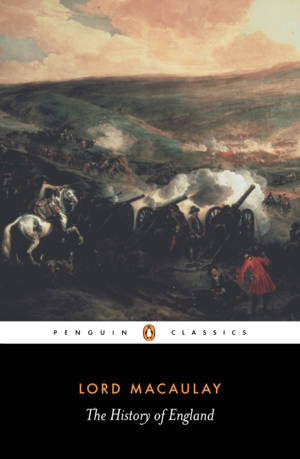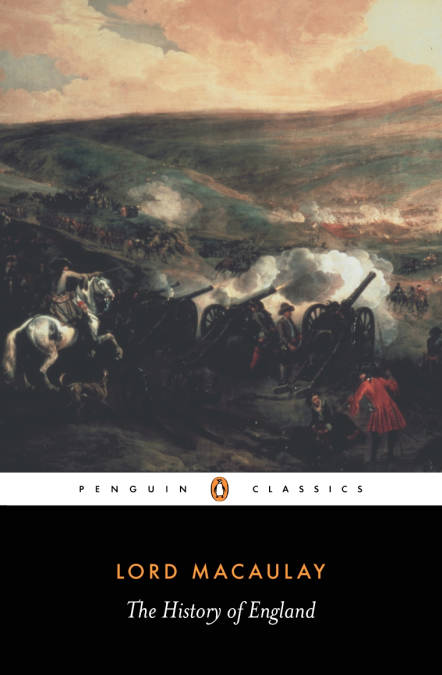
Je cadeautjes zeker op tijd in huis hebben voor de feestdagen? Kom langs in onze winkels en vind het perfecte geschenk!
- Afhalen na 1 uur in een winkel met voorraad
- Gratis thuislevering in België vanaf € 30
- Ruim aanbod met 7 miljoen producten
Je cadeautjes zeker op tijd in huis hebben voor de feestdagen? Kom langs in onze winkels en vind het perfecte geschenk!
- Afhalen na 1 uur in een winkel met voorraad
- Gratis thuislevering in België vanaf € 30
- Ruim aanbod met 7 miljoen producten
Zoeken
Omschrijving
One of the greatest figures of his age, Thomas Babington Macaulay (1800-59) was widely admired throughout his life for his prose, poetry, political acumen and oratorical skills. Among the most successful and enthralling histories ever written, his History of England won instantaneous success following the publication of its first volumes in 1849, and was rapidly translated into most European languages. Beginning with the Glorious Revolution of 1688 and concluding at the end of the reign of William III in 1702, it illuminates a time of deep struggle throughout Britain and Ireland in vivid and compelling prose. But while Macaulay offers a gripping narrative, and draws on a wide range of sources including historical accounts and creative literature, his enduring success also owes a great deal to his astonishing ability to grasp, and explain, the political reality that has always underpinned social change.
Specificaties
Betrokkenen
- Auteur(s):
- Uitgeverij:
Inhoud
- Aantal bladzijden:
- 576
- Taal:
- Engels
Eigenschappen
- Productcode (EAN):
- 9780141961231
- Verschijningsdatum:
- 26/04/2006
- Uitvoering:
- E-book
- Beveiligd met:
- Adobe DRM
- Formaat:
- ePub

Alleen bij Standaard Boekhandel
+ 10 punten op je klantenkaart van Standaard Boekhandel
Beoordelingen
We publiceren alleen reviews die voldoen aan de voorwaarden voor reviews. Bekijk onze voorwaarden voor reviews.









